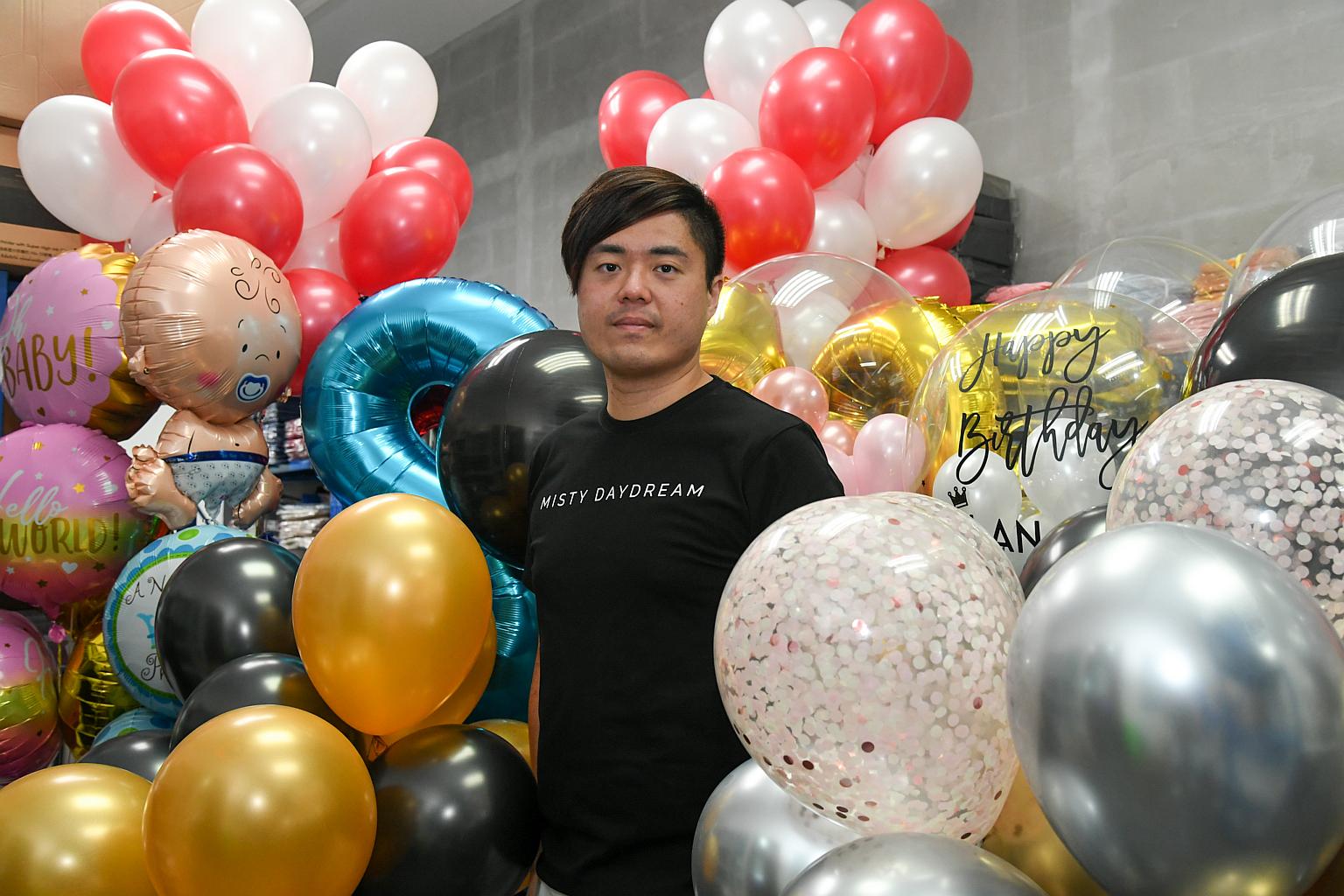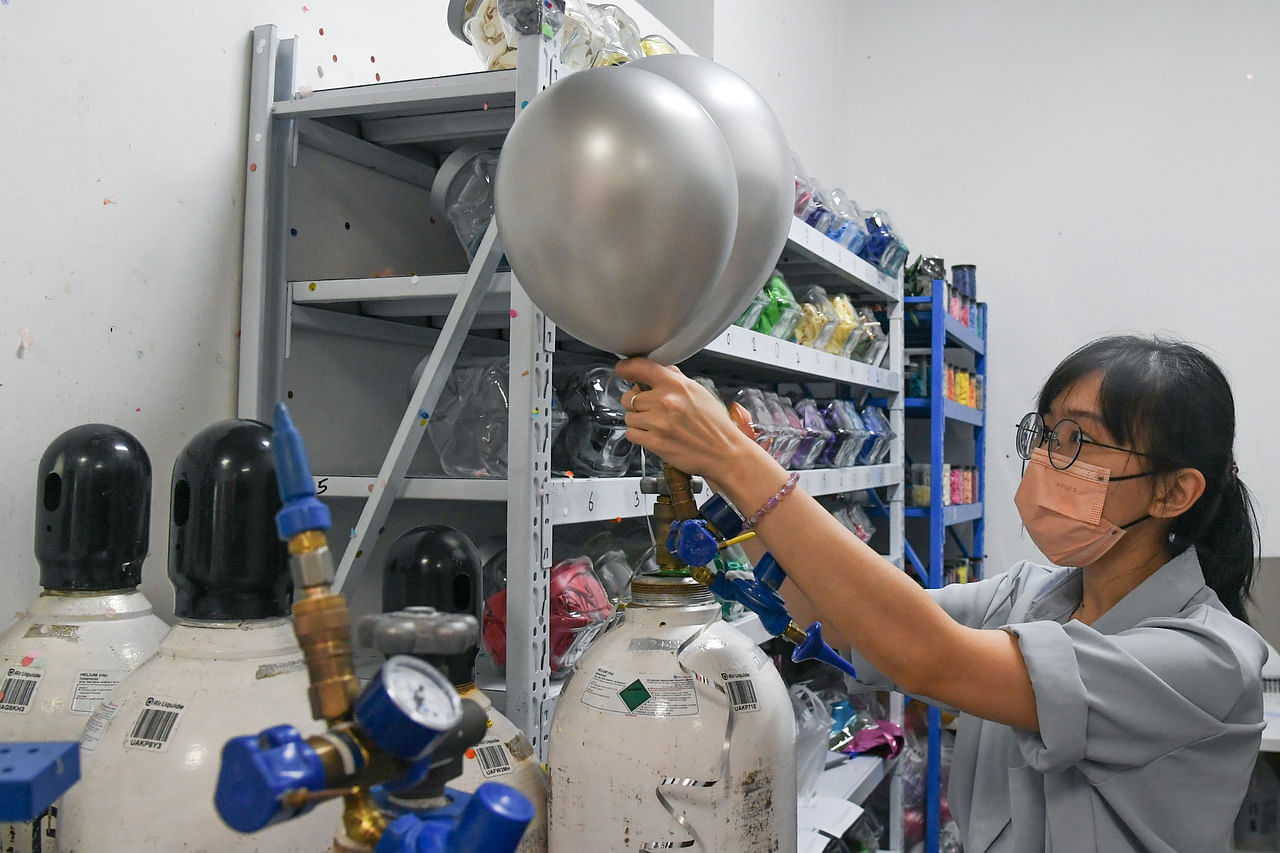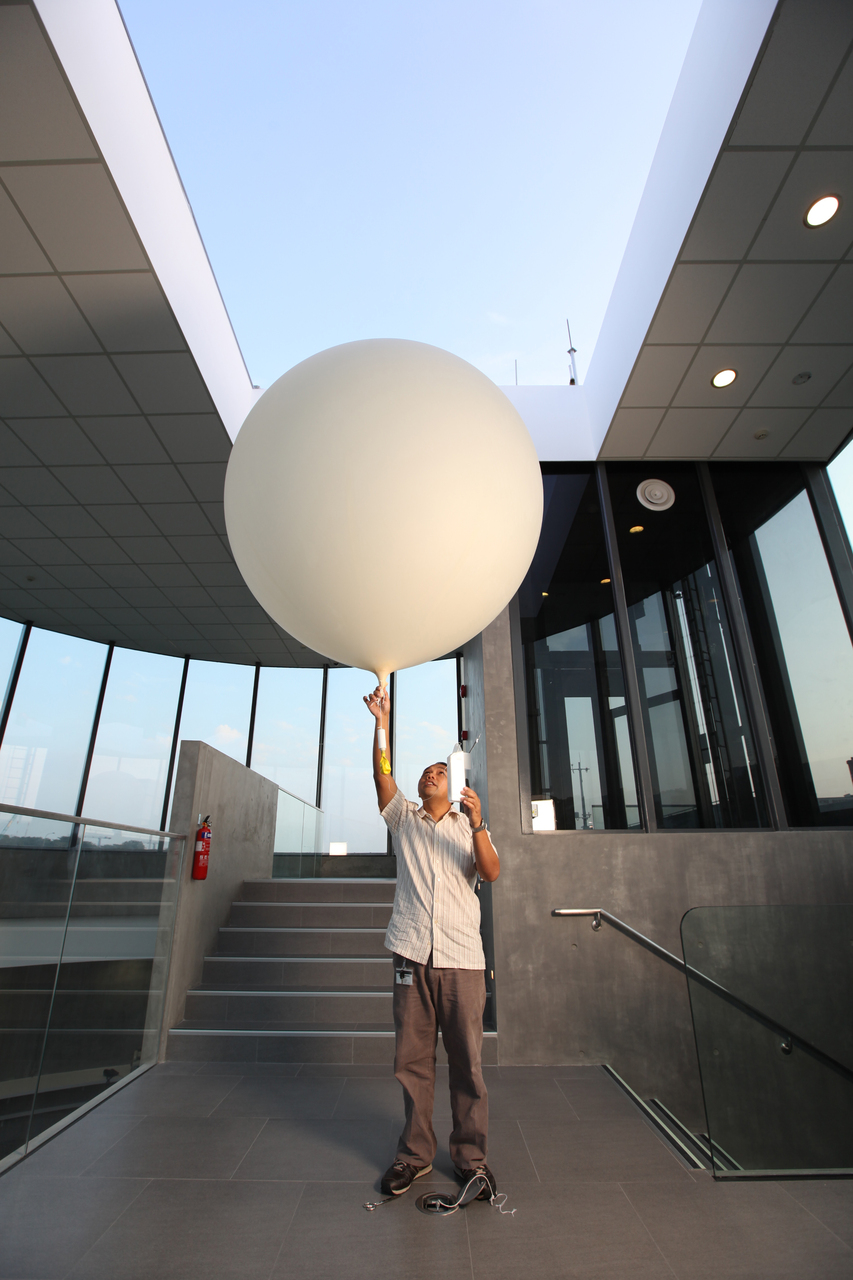Concern among Singapore balloon businesses as the price of helium inflates
Sign up now: Get ST's newsletters delivered to your inbox

Mr Jacob Tan, owner of party supplies shop Misty Daydream, said the price of a tank of helium has increased almost threefold.
ST PHOTO: EUGENE GOH
SINGAPORE - Following a global helium shortage, Singapore balloon business owners are feeling the pinch.
In an interview with The Straits Times last week, Mr Jacob Tan, owner of local party supplies and decorations shop Misty Daydream, said a 47-litre tank of helium that used to cost about $120 early last year has now spiked to about $360.
Requiring about 10 such tanks a week to pump and sell about 5,000 balloons, Mr Tan said he is concerned about the rising price of helium, especially after it went up exponentially recently.
The 33-year-old added: "I asked a supplier who said that the helium from Singapore used to come from Russia, but due to the war between Russia and Ukraine, they are now importing it from the United States, that is why there has been this (recent sharp) increase in price.
"While we have not increased the cost of our balloons yet, we may have to do it soon because the profit margin might not be there to sustain our business."
All five businesses that ST spoke to said there has been a significant increase in the price of helium.
Mr Kyle Geronimo, director of operations at Starships Balloons, said: "Our company is built fundamentally on balloons. The staff are concerned as this is their livelihood. But it is like every other situation that other businesses are facing, and we are trying to find alternatives to cover up the loss."
Mr Geronimo, 26, said the company is looking to diversify into other party supplies and fresh flowers, a move partly driven by the helium shortage.
It is also looking into pushing out non-helium balloons such as air-filled ones, which is also an option being explored by Mr Rayner Tan, 34, from online balloon shop BoBoChaCha.
Mr Rayner Tan said: "These air-filled balloons cannot float, so you have to come up with ways to make it more fanciful. For example, flower balloons that don't float can still be bought as a get-well-soon gift or for a birthday or Valentine's day."
But BoBoChaCha's main business comes from helium balloons and he is monitoring the situation closely, and is hoping to not increase the price.
"The balloon market is very competitive and consumers are very price sensitive," he said.
Earlier this month, news agency AFP reported that the helium supply chain had been disrupted by plant closures in Texas over safety issues, in Qatar due to maintenance and in Russia after a fire that took place prior to the war in Ukraine.
The report said that only a handful of countries - led by the US - produce the gas, which is also liquefied to cool magnetic resonance imaging scanners and also used in the manufacturing of semiconductors.

The shortage has forced the National Weather Service in the US to reduce the launch of balloons used for forecasting at a handful of its sites.
A spokesman for Meteorological Service Singapore said it is monitoring the situation to ensure continuity of its operations.
The spokesman said: "The twice daily launches of weather balloons require about 25 litres of helium gas per day, which is obtained from a local supplier.
"So far, the launches have not been affected by the helium gas shortage."

The spokesman said the data collected by the weather balloons is used by meteorologists to analyse current atmospheric conditions and to support operational forecasting.
It is also used for weather prediction models that generate guidance products for the aviation industry and is also exchanged with the international meteorological community.


